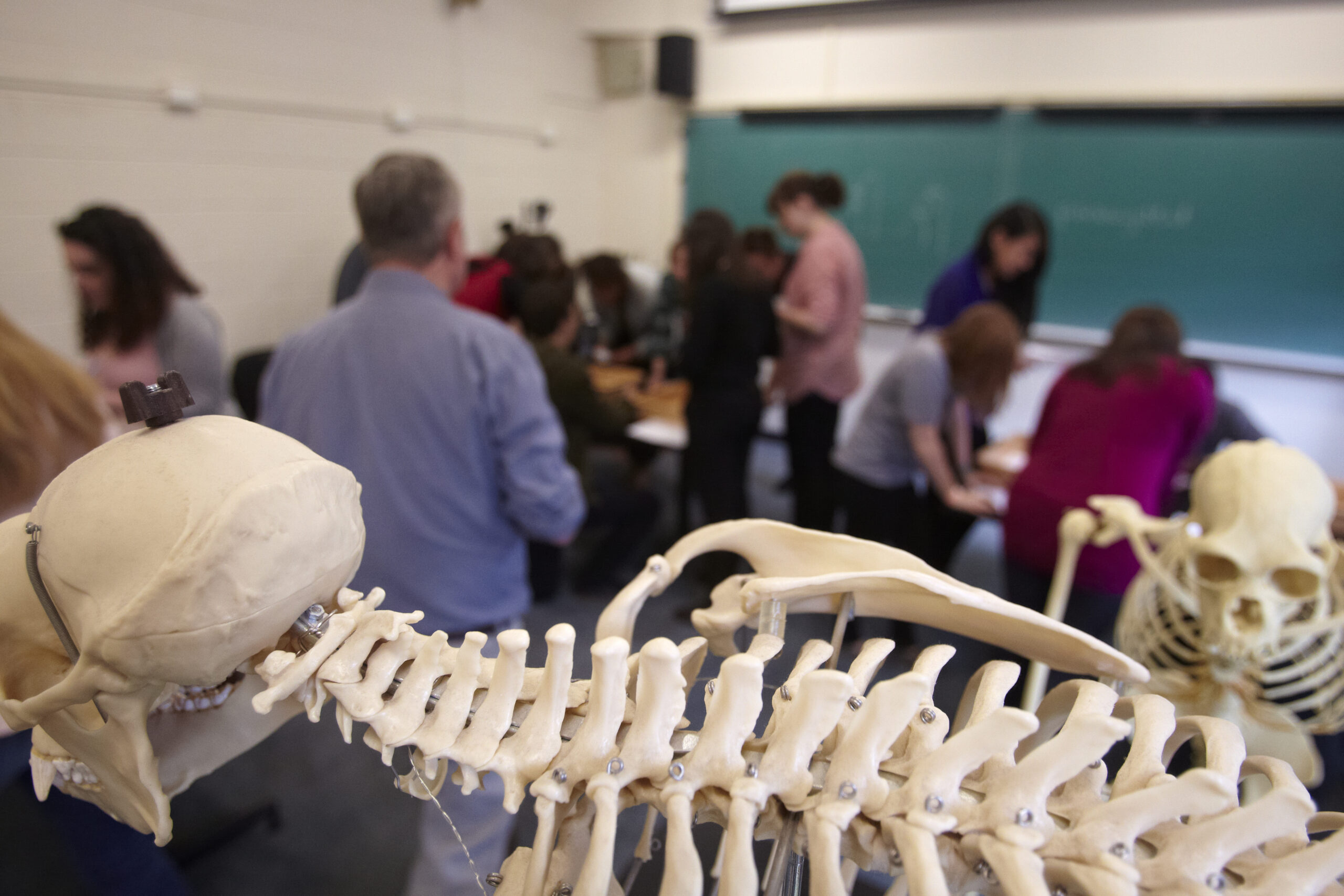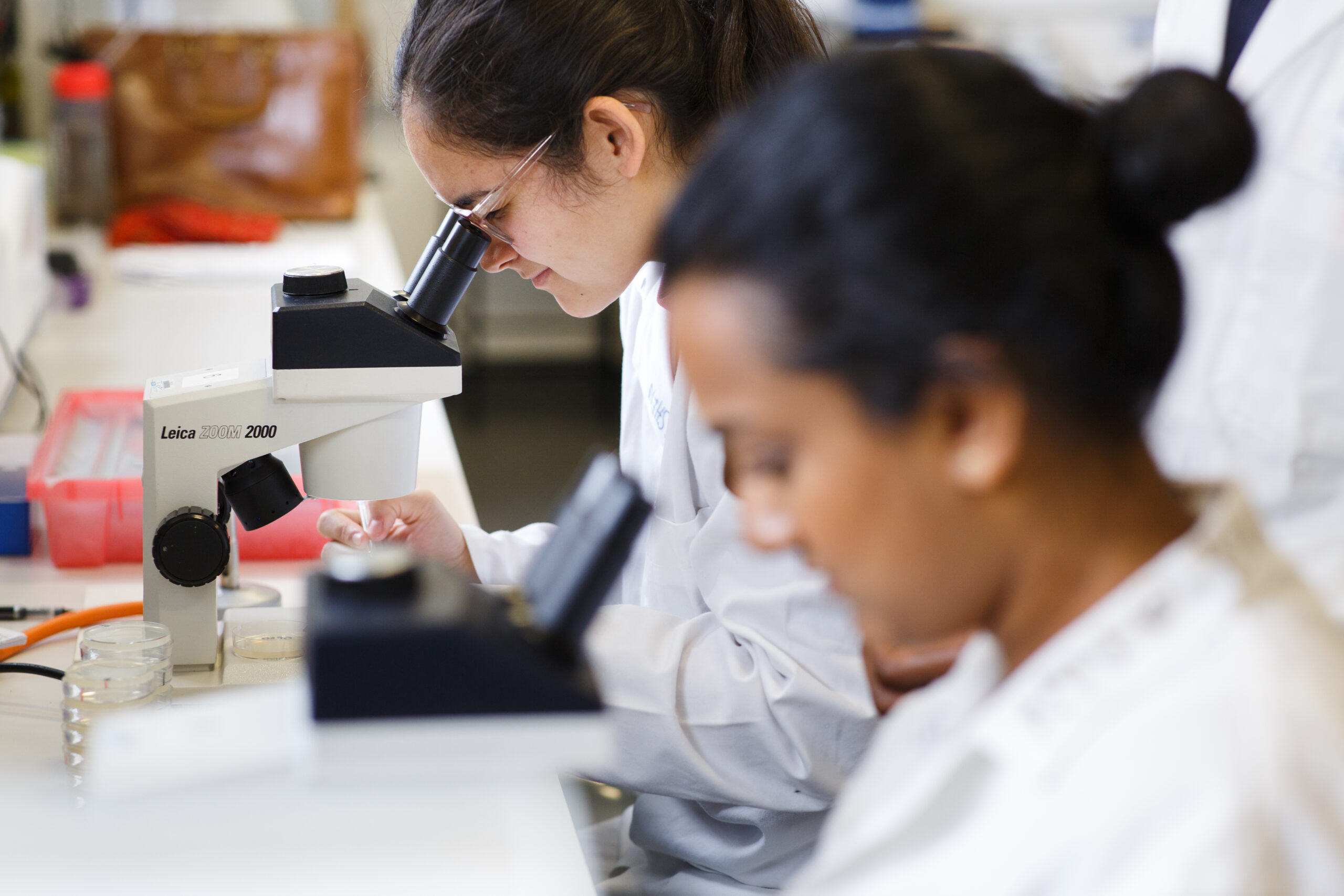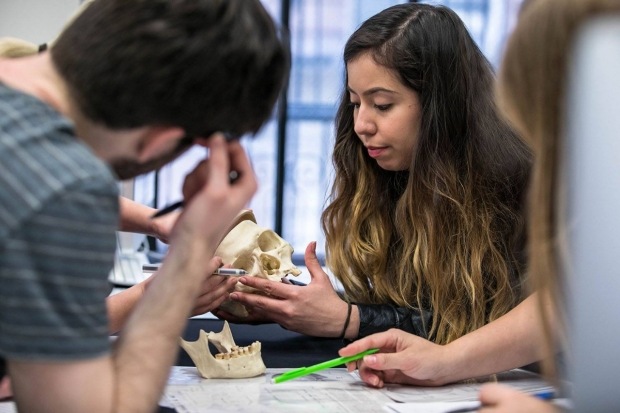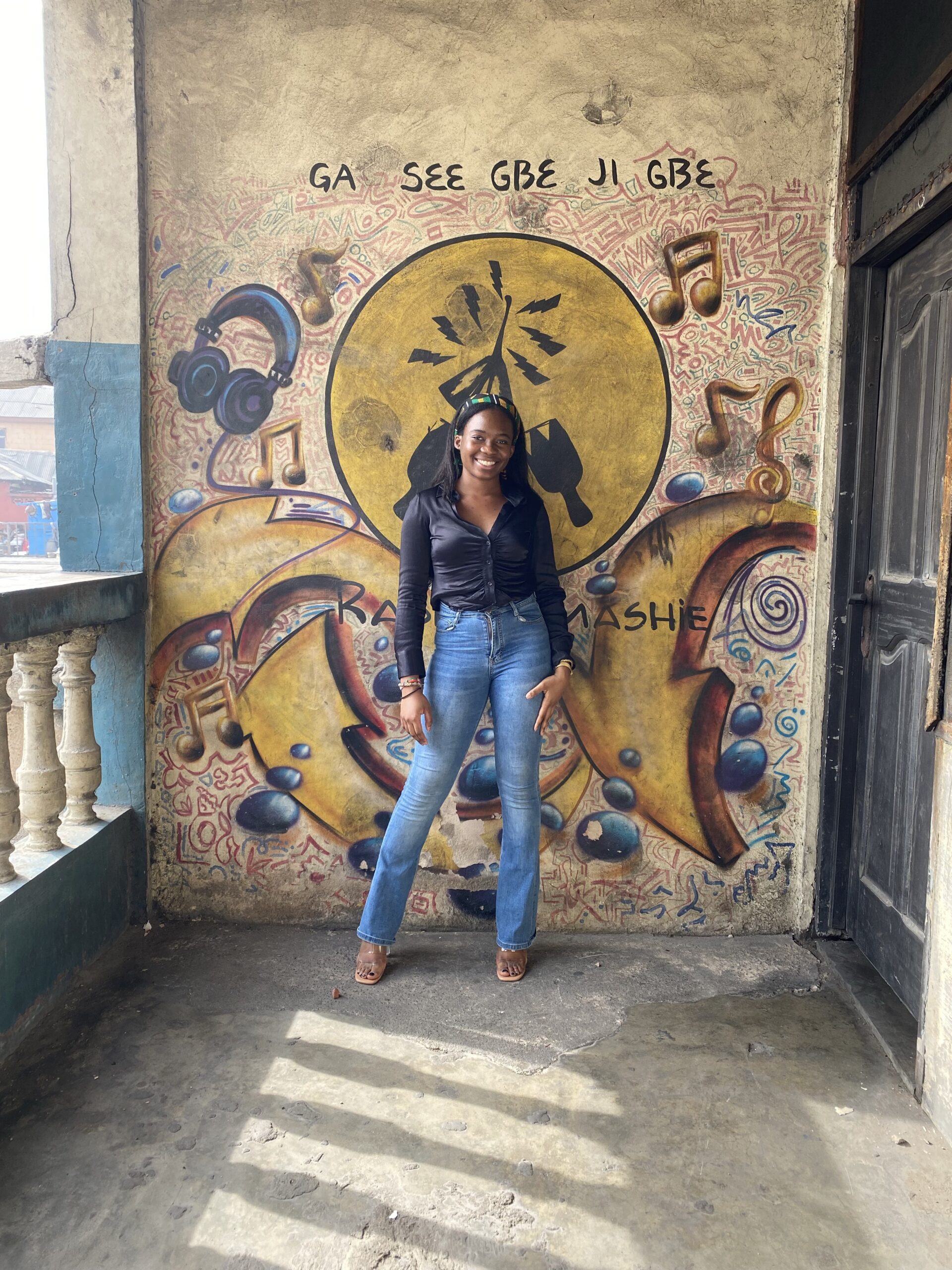
What does it mean to be human? That’s the central question students in the Anthropology major at NYU seek to answer. As they research some of society’s most pressing issues, students explore the origin and development of humans and civilization. As a result, the major is a perfect fit for anyone who wants to delve into the world’s divergent systems of thought, belief, and social order.
“Many college students nowadays are invested in questioning standard narratives about how the world is and should be,” says Radu Iovita, director of undergraduate studies for the Department of Anthropology. “For anyone who ever wondered if a more egalitarian society would ever work, anthropology has hundreds of actual examples, both contemporary and past. For anyone curious about food and current diets, anthropology will offer the evolutionary, historical, and contemporary context for how culture and biology influence our tastes. And for those wondering if anyone can ever really understand people who are different from themselves, anthropology is the only discipline that can show us the way to do that.”
At NYU, the Anthropology major consists of four subfields: archaeology, biological anthropology, cultural anthropology, and linguistic anthropology. Each one offers nearly limitless opportunities for experiential learning.

Specialty Subfields
Together, the four subfields provide a robust overview of anthropology as a whole. First, archaeology uses the scientific method to determine how people lived across time, including in the prehistoric past. Next, biological anthropology studies the evolution and biology of humans and other primates. Cultural anthropology concentrates on social order, with its many expressions and hierarchies, through art, identity, and health. Finally, linguistic anthropology examines language’s impact on culture and life.
The program’s curriculum requirements introduce students to each of these fields. While they are not required to develop a specific focus, many students do, honing their expertise through courses, research, and extracurricular activities.
Major Options
In addition to the standard 36-credit major, NYU students with an interest in anthropology have several other options for interdisciplinary or honors studies. During their junior year, qualified students can apply to the Honors Program. Candidates must complete at least one additional major course as well as a faculty-supervised honors project. This consists of original research sustained over two or more terms and an honors thesis.
Students interested in a broad, interdisciplinary education can pursue one of the anthropology department’s joint majors. The Anthropology and Classical Civilization major focuses on archaeology (which students can also minor in) and cultural anthropology. At the same time, the Anthropology and Linguistics major explores anthropological approaches to language. Finally, the Global Public Health and Anthropology major embraces the convergence of society and health. Students examine the relationships between health and economic, cultural, and biological environments. Then, they apply a robust anthropological approach to public health issues. Each of these joint degrees prepares students for multidisciplinary careers in complex settings.
The Research Community
Perhaps because of their deep interest in other people, the anthropology department is home to one of NYU’s most tight-knit communities. The Anthropology Undergraduate Student Association meets weekly and offers students a place to meet friends and discuss their latest learnings.
“I’ve really enjoyed all of the fun activities, like museum visits, ancient board game nights, and documentary showings,” says association member and Anthropology major Will Steger. “Because anthropology is such a broad discipline, every person in the club brings such a unique perspective. As a result, I’ve really been pushed to broaden my horizons in the best ways.”

Fascinating Fieldwork
Despite its wide scope, the Anthropology major centers on a single core method: fieldwork. This process of immersing oneself in observation and research is central to how anthropologists work and think. To this end, the department encourages Anthropology majors to utilize NYU’s global network to study abroad. The University offers anthropology courses at numerous global sites, featuring topics that take advantage of their location. For instance, students can take Anthropology of Indigenous Australia in Sydney or The Politics of Organized Crime in Florence.

Immersive Internships
In New York City, the anthropology department and Wasserman Center for Career Development have connections with museums, zoos, and more. This unique network allows students to conduct research and gain professional experience without ever leaving the city. For example, Eva-Mercé Fuentes, an Anthropology major, spent two years interning at the American Museum of Natural History in their biological anthropology lab. Soon after, she received a promotion to research assistant. “This position has provided me the opportunity to meet and work with a lot of prominent scientists in the field. Additionally, it has helped facilitate my learning various research methods,” she says.
Other recent student internships showcase a diversity of experiences, from writing for the archaeology beat of a newspaper to conducting archival research at the Merchant’s House Museum. One student even worked at the Allegheny County Office of the Medical Examiner. Anthropology alumni go on to successful careers across fields, including law, health care, marketing, education, urban planning, and cultural resource management.
No matter what they do or where they go, the Anthropology major at NYU prepares students to answer key questions about humanity’s past and present so they can contribute to society’s future. “I love learning about people and how we interact with each other,” shares Eleanor Dobbles, an Anthropology and Linguistics major. “I’ve always been very curious about the world and wanted to understand different ways of life. So anthropology was a natural fit for me.”



